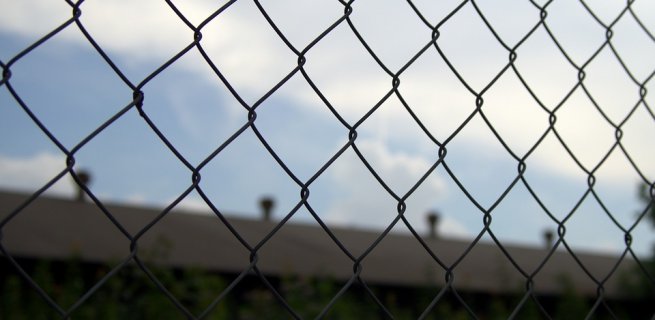We previously reported that in April 2014, former Hey Dad! star Robert Hughes was convicted of sexual assaulting four girls aged between 7 and 15 years during the period 1984 to 1990.
Hughes was sentenced to 10 years and 9 months imprisonment, with a non-parole period of 6 years.
Hughes has had a hard time since the day he arrived at prison. Fellow inmates hurled milk cartons of urine and faeces at him on the very first day, and guards laughed as he broke down on the phone to his wife, still covered in excrement. For his own protection, Hughes is now serving time in the high-risk management block at Goulburn prison.
As previously pointed out, people are sent to prison as punishment, not for punishment. In other words, the fact that they are deprived of their liberty is the punishment, and they are not supposed to be subjected to additional corporal punishment whilst there.
Earlier this week the NSW Court of Criminal Appeal dismissed Hughes’ appeal against his conviction and sentence, but expressed grave concerns about allegations that Hughes has suffered physical and verbal abuse behind prison walls.
Among other reasons for his appeal, Hughes said he did not receive a fair trial because the jury was influenced by negative press and that he was subjected to “poisonous vilification” from members of the public via social media. Hughes’ legal team also submitted that his particularly harsh treatment in custody could not have been anticipated and was therefore not properly taken into account during sentencing.
The refusal of his appeal means Hughes will serve at least six years in prison.
It is one of many cases to find that juries are able to reach an impartial verdict in high profile cases, despite the intense scrutiny from mainstream reporters and social media in the digital media landscape.
Trial by (social) media in the digital age
There is ongoing debate about the rise of social media and its impact on criminal trials.
Court reporters are increasingly using social media to “live tweet” criminal proceedings, including the accused’s evidence, cross-examination, the verdict and sentence before their final article is published.
The public can also use social media as a platform to publish their own views about criminal trials alongside those from the mainstream media.
While some welcome technology as a way of achieving open justice and public engagement with the criminal justice system, others argue it complicates the relationship between the courts and media in Australia, making it easy for inaccurate, inflammatory reporting to be published and difficult for the accused to receive a fair trial.
The trial judge acknowledged the media storm surrounding Hughes had caused respected legal commentators to question whether he could obtain a fair trial, and found it necessary to instruct the jury to disregard any media input.
In dismissing Hughes’ appeal, Justices Monika Schmidt, Margaret Beazley and Richard Button said,
“All of us: accused, victims, judges, jurors and other members of our community now live in a world of instant, largely unregulated communication of opinions disseminated by publication on social media, where they can endlessly be accessed and responded to by others.”
The court considered some of the social media responses, including Facebook comments on Channel 9 News content: “Lock the pedo up”; “Innocent men don’t hide out in Asia”; “Once a pedo always a pedo”; “Lock him up so he can’t ruin any more lives”; “Hang the pedo”.
As well as acknowledging the extensive criticism of Hughes on social media, the trial judge and the appeal decision expressed concern about the result of “bad reporting” from mainstream media organisations, including inaccurate and prejudicial reports from The Daily Telegraph and the ABC.
But the court held that the digital media environment should not have any effect on a criminal trial,
“The reality remains, however, that our civil society and the justice system which it has devised, is the means by which we help ensure that such views remain confined to social media, where those who hold such views are free to express them, rather than being acted on.”
Harsh treatment in prison
Hughes’ criminal lawyer told the court that his client has suffered constant physical and verbal abuse by other inmates since being sentenced in May last year, saying:
“He has been spat on, showered with excrement and urine, and scalded with boiling water. For some time, the applicant had to “run a gauntlet” to reach the building in the gaol where legal and personal visits are conducted.”
Hughes and his wife said that they have not made complaints or agreed to have Hughes transferred to a different prison because they are afraid the abuse will worsen.
In August this year, we commented on the abuse Hughes has suffered in gaol and noted that inmates often experience punishments beyond that determined by the judge—as other inmates, and even prison guards, mete out their own ideas of ‘justice’. We discussed that incarceration can be counterproductive to rehabilitation, especially when vigilantism is permitted, or even encouraged, within prison walls.
The appeal judgment condemned the harsh treatment Hughes has suffered in prison, but found no error in the way the criminal trial was conducted.
Although his appeal was dismissed, the court asked that the allegations about Hughes’ treatment in prison be referred to the Minister and Commissioner for Corrective Services.
After the decision was handed down, Hughes’ lawyer said he welcomed a review of his client’s treatment in gaol and would not rule out an appeal to the High Court.












Hello, ill do my best to make my points.
for what ever reason he molested the girls it does not change the fact that it was done even with time he learned what effect it has on the victims.
I have known for decades that any person going to gaol for crimes against children will be subjected to all sorts of abuse.
People in general are always going to form a opinion that is driven by vigilantism.
As for in court social media posts, maybe their should be a ordered switch off of all devices or install mobile jamming units in these cases.